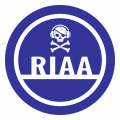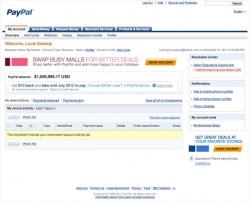Weekly News Roundup (25 December 2011)
Welcome to this Christmas Day edition of the Weekly News Roundup. I know I said that there might not even be an issue of the WNR this week, as the news might dry up, but it’s actually turned out to be the opposite, so I have to spend Christmas Day writing the WNR in absolutely humid conditions, and also in the middle of a hail storm – looks like I’ve definitely not been nice this year!
Further evidence of me being naughty in 2011 is the fact that all I seems to be getting from the Steam “Winter” Holiday Sale’s Great Gift Pile are lumps and lumps of coal. Other people are getting free games, or really useful coupons, but all I get is coal, and coupons for games I already have. Just in case anyone asks, here’s my Steam profile, so you can check out the games I have and the ones I’ve been playing. Add me as a friend if you like, but I must admit that while I love Steam games, I’ve not been a very active member of the community (and I’ve only just figured out how to create a custom URL for my profile).

Anyhow, let’s not waste too much time, as I’d hate to be still writing come Boxing/St. Stephen’s Day. Starting with copyright news, let’s first cover the fallout from last week’s revelation that IP addresses belonging to the RIAA have been used to download pirated songs, movies and even software.

RIAA caught pirating, but they say somebody else did it
The RIAA responded to the allegations with that old excuse of “someone else did it”. Having long argued that a single IP address is evidence enough to identify web pirates, the RIAA did not like being on the other end of the pointy stick, instead coming out with some vague explanation about “third party vendors” and the like. Did these “third party vendors” also only have a single intact arm?
But I’m going to do something controversial and believe in the RIAA’s explanation. Large organisations often have IP addresses within a leased IP block that they provide to third party vendors in order to obtain some kind of service, and so the RIAA’s excuse may very well be valid. Other organisations also caught recently came up with other explanations, such as their IP being spoofed, or that they were downloading only as part of research. And you know what, in the giving mood I’m in, I’m going to believe them all. Because all of these explanations, and some are improbable, are all not impossible, and this is why IP addresses should not be used as evidence of copyright infringement, without knowing the exact intent and establishing that significant downloading (and uploading) has actually occurred. You don’t go ahead an charge a car’s owner just because their car’s plate identified during the commission of a crime – you investigate the owner, see if there’s motive/intent, and of course, see if the car or the plate was stolen.

There's something perverse about seeing a million dollars in a PayPal account - Louis better get it out of there before PayPal does something naughty
Before we get to all the SOPA stuff, which again dominated the week, let’s continue the follow-ups to last week’s stories. Louis CK’s DRM-free experiment has had an update, and after 12 days of sales, Louis has revealed that sales have reached the million dollar mark (with a screenshot of a PayPal account with the said million dollars – better get the money out of there quick Louis, you know what PayPal is like). So that’s a lot of money, despite rampant piracy, which just goes to show that piracy can never really be stopped, but you can still make decent money if you do the right things. The hype over the experiment has obviously increased the visibility of the show, which explains the high piracy rate, but for artists and performers, reaching people sometimes is just as important, if not more important, than actually making money. And through piracy, Louis CK might have just gained quite a few more fans, and that can only be good for business in the long run. And with Louis donating a large chunk of the money to charity, another large chunk to employees as a bonus, this experiment definitely has a happy ending (for Louis as well, as he’s keeping $220,000 for himself to, in his own words, to “do terrible, horrible things with and none of that is any of your business”). If Louis wants to continue the experiment, perhaps the next time, he can use a “pay what you want” model like the Humble Bundles, as this may help to convert more pirates to payers, as $5, while not expensive, is still quite a lot for a lot of people in this economy, to spend on comedy videos.
So while Louis, his staff, and his charities are all having a merry Christmas, there’s been one naughty boy that’s not having such a nice one. Righthaven’s long, excruciating death continues this week, with news that their website’s domain name has just been seized. And not only that, it may very well be auctioned off to pay creditors. If I had money, I would buy the domain name, and put up a DHS style seizure notice on it warning others from trying to profit using the sue-for-settlement approach. Maybe even linking to a cheesy video explaining why you’re even just for thinking about getting into the sue-for-settlement business. And for Righthaven to lose their own domain name, when they’ve been (without standing) threatening to take away other people’s domain names – I don’t know if that’s justice, or irony. Probably both.
Now for the SOPA stuff. With SOPA under intense pressure, the boss of the MPAA, former US Congressman and Senator Chris Dodd gets back to what politicians (and lawyers) are best at doing to defend SOPA: lying (or at least exaggerating the truth). Dodd, who recently said that China should a model the US should refer to for Internet censorship, now says that if we don’t do something about piracy, the US could end up like Sweden, Egypt or Spain, where their local film industries are “gone”. Not just shrunk, or hurt, but “gone”. And of course, none of it is actually true. These countries still churn out tons of films, and in Sweden’s case, films that have made more than a hundred million worldwide, which is rare for non US based films. Ever heard of ‘The Girl With The Dragon Tattoo’ or ‘Let the Right One In’? The original Swedish productions, which has “inspired” recent remakes, were all big hits. And both Egypt and Spain have produced more films in the last few years, not less (or at least up to 2011 for Egypt, when domestic conflict probably will have reduced film production). And this was probably the last notable defence of SOPA for the week, as the rest of the stories are all about the opposition to SOPA.
If the Internet is good at producing one thing, it’s comedic music videos. And the anti-SOPA protest movement were enriched with not one, but two new protest songs this week. One is from activist Dan Bull, while the other is from the composer of the “Obama Girl” hit. This is the kind of creativity, the kind of freedom of speech, that may very well be endangered if SOPA is passed into law, because the very sites that help to host and promote these kind of original videos, will be the ones under attack by SOPA – the same platform that allows for creativity, can often also allow pirated content to be hosted as well (in fact, I think you can safely say that YouTube wouldn’t have a been a hit had it not been for the pirated stuff that were dominant during the website’s early days).
Also joining in the protest was Scribd, a document upload and sharing website that has become incredibly useful as a way to embed documents in the same easy manner as videos. But it too would be under attack by SOPA, as it operates on a business model not too different from “rogue” sites such as Megaupload or Rapidshare. I’m sure there are lots of copyrighted content on Scribd, but SOPA punishes an entire website for the act of a very small minority of individuals (outside of the control of the website), and Scribd has a lot to lose if SOPA becomes law. Which is why on Wednesday, Scribd chose to randomly censor words from the billions of documents they hosts, an act of protest to hopefully get people to understand the threat posed by SOPA, and its likely impact on the Internet.

Reddit may have to close if SOPA is passed, due to the compliance cost associated with the controversial legislation
Joining Scribd on the potential list of sites that will be hurt by SOPA is Reddit, one of the Internet’s largest communities. The general manager of the website says that if SOPA passes, then Reddit would probably have to close down, due to the legal requirement to make the website compliant with SOPA. With millions of new posts to go through, the team of roughly 11 staff, mostly engineers, would not be able to keep up with the moderation duties required and there would be no choice but to close the website down. This is because, under SOPA, just a single bad link out of the millions of posts would be enough to mark the entire domain for seizure, and with millions and millions of posts, no doubt containing potentially tens or even hundreds of thousands of links to infringing content, that’s probably enough to mark the site as “dedicated to piracy” under the SOPA terms. And when that happens, all that would be then needed would be a content owner to request Reddit.com be blocked, and that would be that. Multiply that by however many user-generated websites there are on the Internet, and you can start to see the full damage that SOPA could cause.
But one tech company that has been outspoken in its support for SOPA has been domain registration and hosting company, GoDaddy. And ironically with Reddit being threatened, it was a post on Reddit that has now helped to reverse the company’s stance on SOPA. A post asking for a boycott of GoDaddy quickly gained popularity, with the likes of the Cheezeburger company (as in “I can has cheezeburger”), and even Wikipedia, all threatened to move their domain registration from GoDaddy to other providers on the 29th. Facing the prospect of losing potentially thousands of customers, GoDaddy relented and dropped their support for SOPA, although they have not formally dropped their support for the equally dangerous Protect IP Act, so the protest could be still on. Update: Apparently, tens of thousands of domain names have already been moved away from GoDaddy, as people are still not convinced of GoDaddy’s position on SOPA (they’re not anti-SOPA, they’re just not supporting it “right now”).
And so GoDaddy joins the list of companies and organisations not backing SOPA, but it was company that should have never supported it anyway. But when the Heritage Foundation also expressed their disapproval of SOPA, that was my “WTF” moment of the week. The Heritage Foundation, a right-wing think-tank, has been as pro-copyright as anyone, and so for them to speak out against SOPA, and as influential as they are amongst conservatives (having just hosted a presidential nominee debate for the Republicans), they must have had some serious reservations about SOPA. And they did. Mainly with how the government will given the power to censor websites, and also search engine results, in effect, censoring the flow of information. Hopefully, Republicans in the House and Senate will now think twice about voting for SOPA, or face being chastised by the Heritage Foundation for being anti free speech.
And in the same news article that I wrote, there was also a bit about Ashton Kutcher coming out against SOPA, but he was never really going to support it, considering his profile on the Internet, and his involvement with start-ups.
But probably the best argument against SOPA, and one that even content holders can possible agree with, is that SOPA probably won’t even work, despite the threat of collateral damage it poses. This week, we had the news of another Firefox add-on that looks set to defeat SOPA’s DNS filtering before it’s even launched, so for anyone serious about pirating, SOPA stops nothing. Nothing except actually ensure that new DNS protocols, designed to prevent DNS spoofing, cannot be implemented. As I’ve mentioned before, if the government was as serious about defeating Internet fraud as they are about helping to prop up a dying business model, then there could be a lot more economic gain to be made by preventing Internet fraud.
Okay, the rain is really coming down now, and the thunder appears to be getting closer. That’s probably a good sign that I should end this edition of the WNR, before the power goes out. Merry Christmas, and see you next week.
